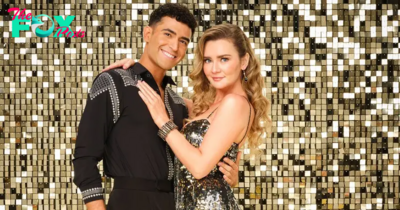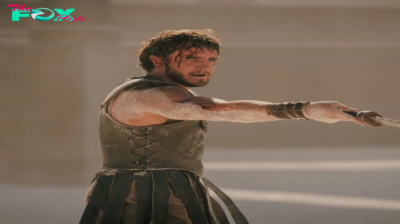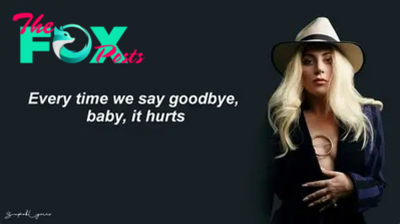Entertainment
On Reinventing the Canon | HowlRound Theatre Commons
Elyzabeth Gregory Wilder: Welcome to Instructing Theatre, a podcast in regards to the observe and pedagogy of theatre training produced for HowlRound Theatre Commons, a free and open platform for theatremakers worldwide. I’m your host, playwright and theatre professor Elyzabeth Gregory Wilder.
Welcome again to the Instructing Theatre podcast for HowlRound Theatre. We’re excited at the moment to have two company to speak about reinventing the canon. Right this moment we’ve Yizhou Huang, an assistant professor of theatre at St. Louis College. Her work attracts on theatre historical past and historiography, efficiency research, and post-colonialism to look at fashionable and modern Chinese language theatre, Asian American Theatre, and world Asian efficiency. She holds a PhD in Theatre and Efficiency Research from Tufts College. Welcome.
Yizhou Huang: Glad to be right here. Thanks for the invitation.
Elyzabeth: And we even have Nathan Alan Davis becoming a member of us. His performs embody The Refuge Performs at Roundabout Theatre, Nat Turner in Jerusalem at New York Theatre Workshop, The Excessive Floor at Area Stage, Everlasting Life, Half One on the Willman Theatre, The Origin Story, Cincinnati Playhouse within the Park, The Wind and the Breeze, Signet Theatre, and Dontrell Who Kissed the Sea, a Nationwide New Play Community rolling world premiere. In recognition of his physique of labor, Nathan has obtained a Windham Campbell Prize in 2021, a Steinberg Award in 2020, and a Whiting Award in 2018. He’s at the moment the director of the MFA Playwriting program at Boston College. Welcome.
Nathan Alan Davis: Thanks. It’s nice to be right here.
Elyzabeth: So one of many issues that I wished to speak about at the moment is how will we reinvent the canon? This can be a dialog that I believe loads of theatre packages are having, which is de facto essential. So earlier than we get began, I assumed I might start with, what do you assume most individuals envision once they discuss in regards to the basic theatre canon?
Nathan: I believe most individuals envision the Greeks, Shakespeare, and transferring on to, I assume, individuals like Ibsen, after which up by means of American playwrights like Eugene O’Neill. And I imply, these are some issues come to thoughts once I take into consideration classical theatre canon.
Elyzabeth: What about you, Yizhou?
Yizhou: Yeah, I agree. I imply, Shakespeare is unquestionably prime of the record, and I imply there’s Shakespeare in each single park on this nation in the course of the summer season. I really feel just like the canon can be about some sort of narrative, and the issues that I take challenge with will not be a lot with the works which are included within the canon, however the sort of narrative, the sort of story that the canon implies when individuals take into consideration them.
I really feel just like the canon can be about some sort of narrative, and the issues that I take challenge with will not be a lot with the works which are included within the canon, however the sort of narrative, the sort of story that the canon implies when individuals take into consideration them.
Elyzabeth: So kind of constructing off of that, earlier than we discuss how we will reinvent the canon, what do you assume we will study from these performs? Do you assume that they nonetheless have advantage? Are they nonetheless value learning? Why do you assume they continue to be related? Why do you assume they discover their approach onto our syllabi? Do you assume that there are methods to search out worth in a few of these outdated performs and hold them related for this present Technology?
Yizhou: So, going again to the thought of this narrative, I really feel like loads of these performs nonetheless have deserves, but it surely’s actually how we educate it. The sort of story that we inform with that must be modified. And the issue I had was the narrative is that so many individuals assume that that is the narrative, that is the place our theatre comes from, from these canons. And I really feel like in classroom, loads of occasions the work is to say, “That is one narrative of our theatre. It’s not the one one.” So in my case, I believe it’s nonetheless essential to be in dialog with the canon, however not educate that particular narrative.
Nathan: Yeah, I believe I really feel equally. My college students, I imply, I principally educate playwriting programs so usually once I’m educating it’s a hybrid of a… that means it’s principally a workshop, and it additionally contains studying performs. And I believe to Yizhou’s level about the place a theatre comes from, I believe it’s essential to let college students know that theatre comes from them, that they are often the supply of theatre. And likewise being in dialog with performs previous and current, however not treating it as if there’s this kind of ultimate that’s thus far exterior of them they will’t ever attain, and possibly at some point they’ll be worthy of touching it. It’s extra about how will we have a look at these works, and what do they are saying to us, and what will we need to say to them? And so I don’t assume that the existence of the canon must be a limitation to college students. I believe it actually will depend on how they interact with these performs.
Yizhou: There needs to be an invite to construct on Nathan’s level.
Elyzabeth: As we take into consideration educating the following Technology of theatre artists, why do you assume it’s essential to rethink the work we’re educating within the classroom?
Nathan: When you have the chance to indicate any person a complete world of performs, what you give them to take a look at may have an effect on their horizons. It impacts what they see as attainable. So I believe that being aware of what you’re exhibiting them as risk is essential. I believe once I carry any given play into the classroom, whether or not it’s a conventional canonical textual content or not, I attempt to current it as a play that we will have a look at and wrestle with and study. And I believe that there’s loads of worth in some canonical performs, in a lot of them. And once more, it’s extra about what’s our relationship with these works? And I have a tendency to show basic performs alongside newer performs. And I believe you possibly can’t give any person an entire full historical past of theatre in any given class—I imply lifetime, not to mention one class. So I believe you may give a few totally different factors of reference, after which you need to encourage individuals to interact on their very own and also you hope you encourage them to need to study extra.
However for me, once more, as a result of educating individuals extra of a playwriting class, I’m additionally most taken with what does this encourage in them? After which possibly what they bring about may encourage me to say, “Oh, try this play that jogs my memory of this.” And so I believe it’s essential to only preserve an perspective and set an instance that’s versatile in order that once you’re speaking to a scholar, you possibly can present them and exhibit, “Oh, there’s loads of totally different instructions you possibly can look.” After which they’ll really feel like they need to discover the issues which are on the market. And I believe there’s most likely extra sources and extra availability. There’s extra of a capability to attach with extra issues now there ever has been. And so I believe in that approach it’s a optimistic place that we’re in loads of methods.
Elyzabeth: I believe you make a very good level there about exhibiting college students the chances that exist. I believe that there’s loads of worth in exposing college students to works that they will relate to and that they will establish with and that they see just isn’t that far out of attain.
Yizhou: However then I additionally keep in mind once I was youthful and realized the age that these playwrights wrote their masterpieces, I used to be like, “Oh, wow, time is operating out.”
Elyzabeth: Okay. Proper, I do know. Half of the nice ones have been useless by the point they have been my age.
Yizhou: And to return to your query, I really feel like, yeah, I completely echo loads of issues that Nathan simply mentioned about factors of references. I don’t educate playwriting courses, however I educate play evaluation courses, and I additionally educate theatre historical past, which I believe is at all times is mostly a problem to show these days. So many packages are enthusiastic about rethinking how they’re educating theatre historical past. The normal two semester or three semester sequence of theatre historical past is disappearing from the curriculum throughout from the nation. And individuals are rethinking, “Nicely, how a lot info college students can retain from these performs anyhow?” I believe it’s essential to rethink the canon that we educate additionally as a result of I really feel like our life simply works in a different way. Our thoughts works in a different way when, if somebody was writing, there was no Netflix, there was no Twitter, there was no Instagram—I simply really feel like how we work together with info is totally different.
Shakespeare’s viewers most likely felt very in a different way for the lens, by way of the lens of the play. I at all times really feel prefer it’s so troublesome to sit down by means of one other manufacturing of Shakespeare these days as a result of I simply really feel like my physique is so conditioned to the truth that I can pause issues and do different stuff. So I actually assume it’s essential to ask college students to contemplate the relevance these canonical works need to our on a regular basis life and likewise to contemplate the relevance these works needed to their authentic viewers, to audiences at totally different factors of historical past, and actually invite them to consider their very own company as artists and students when writing. As a result of I really feel like that to present college students company, such as you simply mentioned, to encourage them to make issues new, I believe that is essential.
Elyzabeth: So for somebody who’s seeking to rethink the performs that they educate, the place ought to they begin? I imply, there’s a lot nice materials on the market. How do you determine what to show?
Yizhou: So one tip that I’ve is to consider variations as a result of I really feel like they’re very environment friendly. So many variations are already in dialog with sure moments in theatre historical past. For instance, I educate Wole Soyinka’s the Bacchae by Euripides, which is already in dialog with the traditional Greeks, but additionally has this side of post-colonialism. I additionally educate Branden Jacob Jenkins’s An Octoroon, which is already after all in dialog with the melodramatic custom. So I believe that’s the place I actually begin with when enthusiastic about using the precious class time to cowl a broader scope of prospects.
Nathan: Yeah. I don’t know that I might have quite a bit so as to add to that. These are great concepts and effectively, I assume one play that I’ve not too long ago been utilizing within the classroom, Father Comes House from the Wars, Elements One, Two, and Three by Suzan-Lori Parks, which can be very a lot in dialog in a sure approach with The Odyssey, but it surely’s not an adaptation. It’s utilizing language in a approach that’s actually very a lot within the African American custom concerning wordplay and naming and poetry, but it surely’s nonetheless referencing a few of these concepts that we discover in historic Greek literature. And I believe that one of many issues additionally to contemplate concerning the canon, and it’s not only a matter of claiming, “Oh, these performs are one of the best.” It’s actually an acknowledgement that these performs have for generations been a part of our training.
So loads of Shakespeare, it is rather a lot built-in into English language and tradition. It’s not like you possibly can have a look at it merely as a play per se. And so I believe to fake that it’s not the case that doesn’t actually serve anyone. That is a part of what larger training has been for a very long time. And I do assume approaching it with variations, ways in which individuals are participating with it, as a result of I believe actually any data is constructing off of what got here earlier than it. And so with the ability to level out totally different origin factors is essential, but additionally acknowledging that a few of these origin factors are within the basic canon, and it’s okay to interact with these issues and to study from them.
One of many texts that I’ve been utilizing within the classroom is a chapter from a e-book referred to as Establishing the Pluriverse, and it’s a chapter written by the creator Ouattara, I hope I’m saying that accurately, it’s a French creator, however the chapter title is “The Griots of West Africa: Oral Custom in Ancestral Information”. And so I’ve been utilizing that facet by facet with Aristotle’s Poetics to speak about these origin factors of theatre and origin, origins of dramatic custom and storytelling traditions. And there’s loads of parallels, not solely with one another per se, however with the precise position of the playwright in society. And so if you happen to have a look at Poetics, or if you happen to have a look at the griot traditions of West Africa, there’s loads of issues that don’t instantly translate to, say, a playwright working in america at the moment. However there are loads of similarities. And if you happen to discuss the way in which {that a} dramatist may have a look at their position in society, and even issues within the Poetics that discuss Aristotle factors out that the place drama appears to come back from in his thoughts or in his understanding is within the human inclination to mimic.
And in order that’s one thing that’s very accessible, that’s very relatable, that’s, it’s a really direct commentary that almost all college students nod their heads to once they learn Poetics. That’s the one factor they’re like, “Oh, yeah, that made sense.” So I simply assume discovering methods to attach way back to we will with what are the totally different origins of drama as we perceive it and acknowledge that there’s not just one place that it began, that in actuality it’s the intermingling of cultures that create the kinds we all know now. And so I simply assume so long as we’re capable of level that out, then individuals will really feel, I hope the scholars, I hope, will really feel extra linked and enthusiastic about what the canon probably means. And it sort of additionally takes the query away from the thought of the canon per se. It’s simply extra, listed here are various things we’ve entry to in our historical past, and what do they imply to us?
It’s essential to let college students know that theatre comes from them, that they are often the supply of theatre.
Elyzabeth: I really like that.
Yizhou: Yeah, thanks for bringing that up. Proper, as a result of I really feel prefer it’s actually an ideal level that to acknowledge that we’re not likely speaking a couple of single canon as a result of “canon” means such various things to individuals from totally different cultures. As somebody who come from China, our dramatic canon contains a few of the nice Western playwrights, however then additionally we’ve the canonical Chinese language playwrights. And so by invoking the phrase “canon,” I’m already enthusiastic about different issues. And I believe that’s one thing that’s essential to be conveyed to the scholars as effectively.
Elyzabeth: I believe these are all actually nice factors, particularly this concept that the canon goes to have a distinct that means to totally different individuals based mostly on the place they arrive from. And I believe right here within the States, right here in America, we’ve a really virtually iNFLexible concept of what this classical canon is. And attempting to interrupt out from that’s what I believe so many individuals are attempting to do. That is—
Nathan: Yeah. I additionally assume the thought of a canon, and it’s a little onerous to outline what precisely it means as a result of totally different individuals, even if you happen to’re solely trying narrowly at theatre within the Western custom, totally different individuals would nonetheless have totally different concepts of what they assume are an important textual content or no matter. So, I simply assume one of many issues to acknowledge is that the event of what we might name a canon takes centuries to kind of kind, and it occurs because of loads of forces that we will’t actually management by way of political, cultural, social, training, all these items. And so I don’t consider it as, despite the fact that we have a look at it generally this static factor that actually it’s all these totally different forces which have coalesced to create this concept of, okay, listed here are issues which have sort of been, I don’t know, highlighted as essential for our academic world.
And I do assume that the thought of analyzing what are the narratives and underlying that, and the way did that come to be is essential? However I additionally assume it’s essential, I imply, once more, as a result of from the attitude of educating playwriting itself, it’s like I might adore it if a thousand years from now one in every of my college students was thought-about a part of the canon, for no matter cause. I imply, it will partially be as a result of they wrote superior performs, however there’s so many different issues that would or couldn’t occur that will or could not occur sooner or later. So yeah, I simply assume in a sure approach, pondering actually narrowly in regards to the canon is as whether it is simply kind of an arbitrary factor. It does have loads of human aware selection concerned in it, but it surely’s additionally a really lengthy dialog that develops over many, many centuries to a sure extent.
And so it’s virtually onerous from the place we are actually to say, and I’m speaking as an individual who writes performs, it’s onerous for me to say what my relationship to that needs to be, as a result of once I have a look at performs, I simply assume, “wow, what is that this play doing?”
Elyzabeth: So who’re the playwrights you assume are important to the training of a younger theatre artist? Are there particular writers from the previous whose work deserves to be re-examined, writers whose work was possibly neglected or overshadowed ultimately?
Yizhou: I need to echo Nathan in saying that I really like educating Suzan-Lori Parks’s play as a result of there’s so many prospects in the way in which that she writes performs, and I believe that’s actually, actually inspiring. In my play evaluation class, I additionally educate her essay “Parts of Type” as a result of it’s simply such a very good instance to indicate college students, “Look, there are different methods to assemble a play than Aristotle’s strategies.” In order that’s one playwright that I at all times cowl for. After which the opposite playwright is mostly a canonical playwright, which is Brecht. I nonetheless love educating Brecht. I believe there’s nonetheless worth in educating Brecht as a result of there’s so many, he proposed so many groundbreaking methods in theatre that we’re nonetheless utilizing at the moment. However it’s additionally troublesome to show Brecht as a result of loads of college students don’t actually see. They’re like, “Look, I get what he’s attempting to do, however then his performs are simply not that attention-grabbing anymore.” So I believe it’s additionally sort of difficult to show him at the moment.
Elyzabeth: What about you Nathan? What are the necessities?
Nathan: Yeah, I’m going to be sincere and say I’ve a tough time answering that query primarily as a result of, I assume, in a approach that’s a part of my duty as a trainer to say, effectively, that is important. However then if I do this, I additionally really feel like, oh, now I’ve kind of made this selection that needs to be restricted by my very own preferences or what have you ever that claims this, and I’m wondering if… is that the entire thing that we’re attempting to keep away from is saying that, “Okay, effectively holding up this explicit factor as a kind of shining instance,” and anytime you choose something from any record, you’re doing that. So I’m not saying that. I imply, I do have a syllabus most semesters, and I carry issues in, however I don’t know that there’s something that, I imply, if there’s one which’s at all times been on there, least for the previous 5, six years, it has been Father Comes House from the Wars, and I don’t know that it’ll be there ceaselessly. However by way of one thing that actually brings, it has a lot to supply by way of the educating of the craft, A.) as a result of it’s three separate performs—every play, you possibly can study structurally the way it works, however then in addition they match collectively in a very lovely approach.
And since the story itself could be very easy, however there’s a lot complexity inherent within the state of affairs that the play lays out. It’s only a great play, and that’s been actually fruitful to debate. One other play that I’ve usually used within the classroom is Macbeth, Shakespeare’s Macbeth. And I believe that play, by way of Shakespeare performs one, it’s very witchy, which individuals love. There’s every kind of supernatural stuff taking place. The story could be very clear. It’s a little bit wild, and loads of Shakespeare’s performs are literally fairly unruly in a good way. However I’ve usually used Jiehae Park’s play Peerless alongside that, as a result of Peerless is kind of a riff on Macbeth, and it offers with—it’s a comedy—it retains loads of the spirit of Macbeth and simply how wild and the way out of pocket it’s in sure methods. However it’s set in highschool the place college students are working actually onerous to realize a scholarship. And so the ambition is all cranked up. There’s nonetheless, spoiler alert, there’s nonetheless homicide, and there’s stuff that occurs. However once more, it’s a approach to take a look at this factor that’s centuries outdated and this factor that could be a few years outdated and discuss how they converse to one another. So these are simply two examples. Once more, I’m not saying, once more, all of the caveats of, I’m not saying these are the performs, however an instance of, I believe, a technique to join individuals with the previous and the current, and likewise I hope enable them away in themselves to interact.
Yizhou: Yeah. One other instance I’ve is that I really like educating the Chinese language play I Love XXX by Meng Jinghui and his collaborators. And I normally educate this in my play evaluation class as effectively as a result of it’s just about an absurdist piece. However then I don’t need to give them one thing like a play by Beckett as a result of most of them know a little bit little bit of Beckett anyhow. So I need to increase their horizons and provides them one thing that they’ve by no means heard of earlier than. It’s additionally a play that was crafted by Meng Jinghui and his collaborator and his associates, principally. They shared the identical dorm of their grad program, they usually simply began taking part in this sport that they’ll every say one thing that begins with “I really like.” And so the play is an extended record of “I really like so-and-so,” and that’s why it’s referred to as I Love XXX, and it’s actually additionally my technique to encourage the scholars to assume that, look, you possibly can write one thing like this as effectively and make one thing from this phrase sport. Truly, additionally encourage them to write down a bit of this play utilizing this sentence construction or utilizing a distinct sentence construction.
Nathan: So as to add one other play that I believe is value mentioning, simply within the context of people that could be on the lookout for issues, It’s referred to as The Brothers by Kathleen Collins. And I really wrote a essay about this play for the Roundabout Refocus challenge, so you could find that play. One of many causes I believe it’s fascinating is it’s kind of a troublesome nut to crack as a play. And I discover these sorts of performs actually attention-grabbing. There’s some issues about it the place you’re like, does this work? I don’t know. However it’s, the play is nearly solely monologues. And the premise is that there’s a household of brothers, and every scene or act relies on one in every of these brothers, however the one who’s talking within the monologue is the widow of that individual brother. So the solid is nearly solely girls aside from one man who doesn’t converse, who’s like a funeral director. And the play offers with grief. It offers with grief, particularly as the way in which it intersects with gender and gender roles and race. That’s a wholly Black solid.
And it’s such, the way in which that it’s laid out is de facto fascinating. It is extremely theatrical in a delicate approach, in an understated approach and in a sure approach as a result of I believe loads of the performs from the basic canon that I admire are issues like Chekhov’s performs or Beckett’s performs the place there’s one thing about it that’s a little bit Mysterious and never at all times essentially the most pleasurable to look at your complete time. It takes a little bit bit, a little bit effort to interact with, however we’ve kind of determined that, “Oh, it’s value it.” It’s value it to attempt to unpack this. And loads of actors discover worth in that of like, “Oh, okay, let me…” And we’ll discover progressive stagings for them as a result of there’s one thing there that’s value working by means of. And I believe Kathleen Collins, that is an instance of why generally with race and gender, and we overlook individuals as a result of we are saying, “Okay, effectively, that’s powerful. I’m undecided if that actually works.” And we sort of dismiss their efforts, whereas you would say the identical issues about that play that you would say about performs that we admire as a result of they’ve kind of been sanctioned in a sure approach. And Kathleen Collins is any person, I imply, she wrote movies and directed her personal movies. She wrote tales, and she or he’s a tremendous author. So any person that I might undoubtedly assume is value trying into who haven’t but come throughout her work.
Elyzabeth: As we wrap up, one of many issues that I really feel like I hold listening to individuals saying is the concept the canon is continually evolving, and if we consider the canon as kind of this dwelling, respiratory factor that’s evolving, how do you see the canon altering and evolving as we transfer ahead? And what would you prefer to see it develop into?
Nathan: That’s a giant query. I don’t know.
Elyzabeth: It’s a huge query for 9 o’clock within the morning.
Nathan: That’s why that earlier factor I used to be saying in regards to the canon taking a very long time that I sort of ran out of steam and didn’t know the right way to finish it, as a result of I’m like, “Yeah, I don’t know what’s occurring with that.” I believe possibly it’s simply essential to acknowledge that the canon, what we name the canon, I assume it comes from us. It doesn’t actually, I believe the extra, I believe possibly part of it, the query needs to be turned again to our personal understanding of what’s theatre? What’s its objective? How is it supposed to interact with society? How are we doing as educators or as a part of academia? It’s going to replicate our personal…
And I assume that’s why you requested the query, but it surely’s like, I’m wondering if, I imply, I assume one query I’ve had is who decides, you realize what I imply? Yeah. Who decides what canonical performs are, and does it need to do with a collective imaginative and prescient about what theatre means? I imply, as a result of possibly one of many issues that’s taking place is that when energy affect is shared extra, you might have extra views concerned. After which the thought of getting one unified imaginative and prescient of what needs to be counted goes away, or it turns into extra of a struggle to… I don’t know. I simply assume we’re in a second in society the place all the things’s being questioned, issues are altering, and I’m within the query of how will we create unified visions throughout distinction?
What does that appear to be once we’re coming from extensively totally different views and experiences and everyone seems to be on the desk, then we are saying, “Is the purpose to create a unified imaginative and prescient?” If not the thought of a canon might be going to vanish, or it’ll simply be totally different ones or no matter. Or is it value attempting to consciously coalesce round, “Okay, what’s the brand new commonplace?” And that doesn’t appear to be a easy dialog. It looks as if a factor that takes loads of small conversations or takes time, however I don’t know. I don’t know. I wouldn’t even know the place to begin to reply the query, in order that’s why I’m attempting to speak across the various things which may issue into it.
Elyzabeth: That’s truthful.
Yizhou: Yeah, I need to echo that as a result of one factor I needed to do once I began this job was to suggest them buy to the Sloan St. Louis College Library. After which one in every of my colleagues talked about that when he began this job, he talked about to the librarian that we should always at all times buy award-winning performs. That kind of gave me the thought to take a look at performs which are profitable Pulitzer through the years, and I used to be simply pondering, effectively, a few of them will not be actually staged anymore. And it’s actually attention-grabbing to assume {that a} play that was so effectively obtained again then, and clearly at that time was thought-about a part of the canon, however then it’s not likely receiving any productions any longer. So yeah, I actually need to echo that concept that folks make decisions, the market makes decisions, however extra essential, the artists make decisions. I believe there’s worth in not less than in attempting to realize solidarity of some types by means of our decisions. However I additionally assume it’s essential to embrace the variations. And if that embrace implies that we have to let go of this concept of canon, then I really feel like I’m cool with it.
Elyzabeth: Nicely, that seems like an ideal place to cease. I need to thanks guys for becoming a member of me at the moment and for sharing a little bit little bit of your ideas and insights with us, and I admire your time.
Nathan: Thanks, Elyzabeth.
Yizhou: Thanks.
Elyzabeth: This podcast is produced as a contribution to HowlRound Theatre Commons. You will discover extra episodes of this present and different HowlRound exhibits wherever you discover podcasts. Be sure you search “HowlRound Theatre Commons podcasts” and subscribe to obtain new episodes. In the event you love this podcast, publish a ranking and write a assessment on these platforms. This helps different individuals discover us. It’s also possible to discover a transcript for this episode, together with loads of different progressive and disruptive content material, on howlround.com. Have an concept for an thrilling podcast essay or TV occasion the theatre group wants to listen to? Go to howlround.com and submit your concepts to this digital commons.
-

 Entertainment6h ago
Entertainment6h agoHow to See Ava, Chiang Mai Night Safari’s Golden Tiger
-

 Entertainment6h ago
Entertainment6h agoDictionary.com Names ‘Demure’ as Its Word of the Year for 2024
-

 Entertainment8h ago
Entertainment8h agoAnna Delvey Reunites With Ezra Sosa and Flips Him Off Ahead of ‘Dancing With the Stars’ Finale Return
-

 Entertainment11h ago
Entertainment11h agoMethods to Recharge as an Actor
-

 Entertainment11h ago
Entertainment11h agoWeak Sign: October 4, 2024 Tubby’s
-

 Entertainment11h ago
Entertainment11h ago‘Gladiator II’ Ending Breakdown: Did Lucius Realise Maximus’ Dream of Rome?
-

 Entertainment16h ago
Entertainment16h agoGet to Know Bluesky, the New X Alternative with 18 Million Active Users
-

 Entertainment17h ago
Entertainment17h agoChuck Woolery, Smooth-Talking Host of Love Connection and Wheel of Fortune, Dies at 83



















